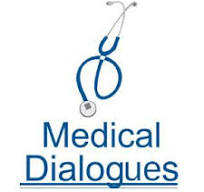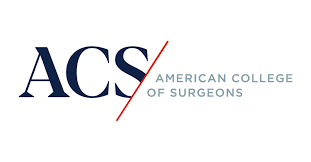
Editor's Note A Florida transplant team has performed the first-ever heart-liver transplant in a patient supported by a left ventricular assist device (LVAD), offering a potential new treatment route for those previously ineligible due to high rejection risk, CBS News reported June 21. The patient, whose antibody levels placed her…

Editor's Note Copeptin levels surge during cardiopulmonary bypass (CPB), marking it as a potential biomarker for physiological stress in cardiac surgery, according to a May 13 article in Medical Dialogues. The article details a prospective cohort study, published in the Journal of Cardiothoracic and Vascular Anesthesia, involving 61 adult patients…

Editor's Note The first study to evaluate percutaneous coronary interventions (PCI) in Medicare beneficiaries treated at ambulatory surgery centers (ASCs) found similar short-term safety outcomes as hospital outpatient departments (HOPDs). As detailed in an announcement from The Society for Cardiovascular Angiography & Interventions (SCAI), the research was presented on May…

Editor's Note A low-cost blood test for troponin, a protein released during heart muscle damage, significantly improves long-term risk prediction for heart attacks and strokes—especially in patients with intermediate cardiovascular risk, according to an April 7 report from News-Medical.Net. The findings, based on a large-scale international study led by the…

Editor's Note Researchers have developed a fully dissolvable, needle-injectable pacemaker that regulates heart rhythms without requiring surgical removal. As detailed in an April 2 article in Scientific American, the miniature device—just millimeters in size—can deliver electrical stimulation for days to weeks before safely breaking down in the body, potentially reducing…

Editor's Note A nurse-coordinated prevention program significantly lowered the long-term risk of major adverse cardiovascular events (MACE) in adults recovering from acute coronary syndrome (ACS), according to an April 2 article in Healio. The program, which focused on lifestyle and behavioral changes, led to a 30% reduction in adverse events,…

Editor's Note Aortic root cannulas from Medtronic are the subject of the latest US Food and Drug Administration (FDA) class 1 recall, the most serious category reserved for risk of injury or death. Affected products include the DLP Aortic Root Cannula, MiAR Cannula, and DLP Aortic Root Cannula with Vent…

Editor's Note HST Pathways’ most recent industry report, discussed on the Advancing Surgical Care Podcast by HST CEO David Thawley and Bill Prentice, CEO of the Ambulatory Surgery Center Association (ASCA), offers insights into cardiology and orthopedic procedures done in ambulatory surgery centers (ASCs) in 2024, Ambulatory Surgery Center News…

Editor's Note Miniaturized pacemakers implanted in neonates and infants have demonstrated reliable performance for up to two years, with no unexpected device failures, according to a March 11 article in Healio. The research, published in Circulation: Arrhythmia and Electrophysiology, suggests that these modified pacemakers could offer a viable alternative for…

Editor's Note Surgeons recently performed open-heart surgery on an infant during a C-section to correct a congenital heart defect, according to a February 25 brief from the American College of Surgeons. Led by Dr. Sameh Said at Maria Fareri Children's Hospital, a team of specialists conducted the procedure on a…